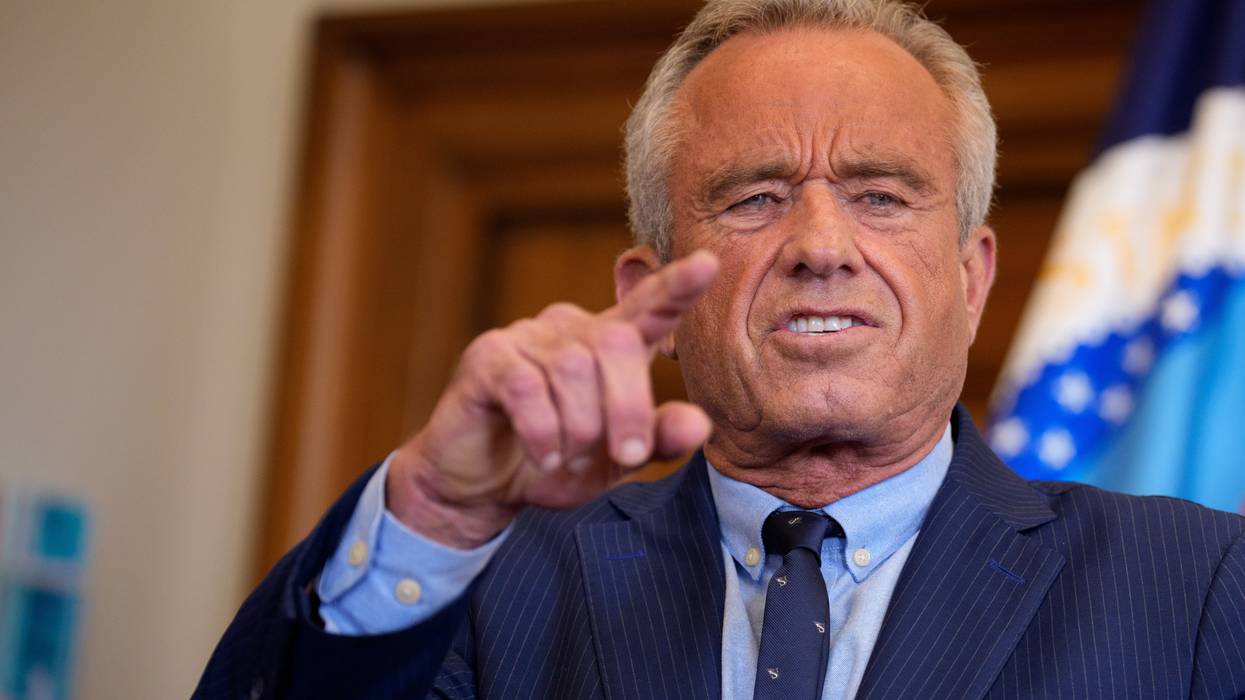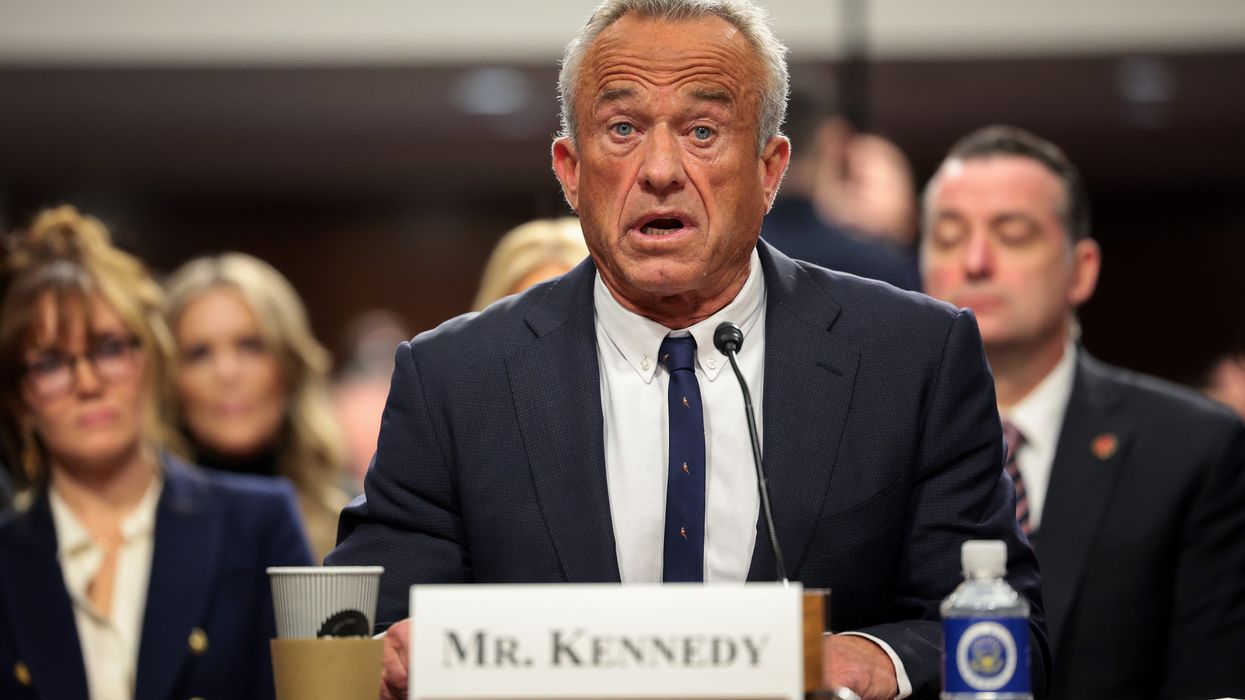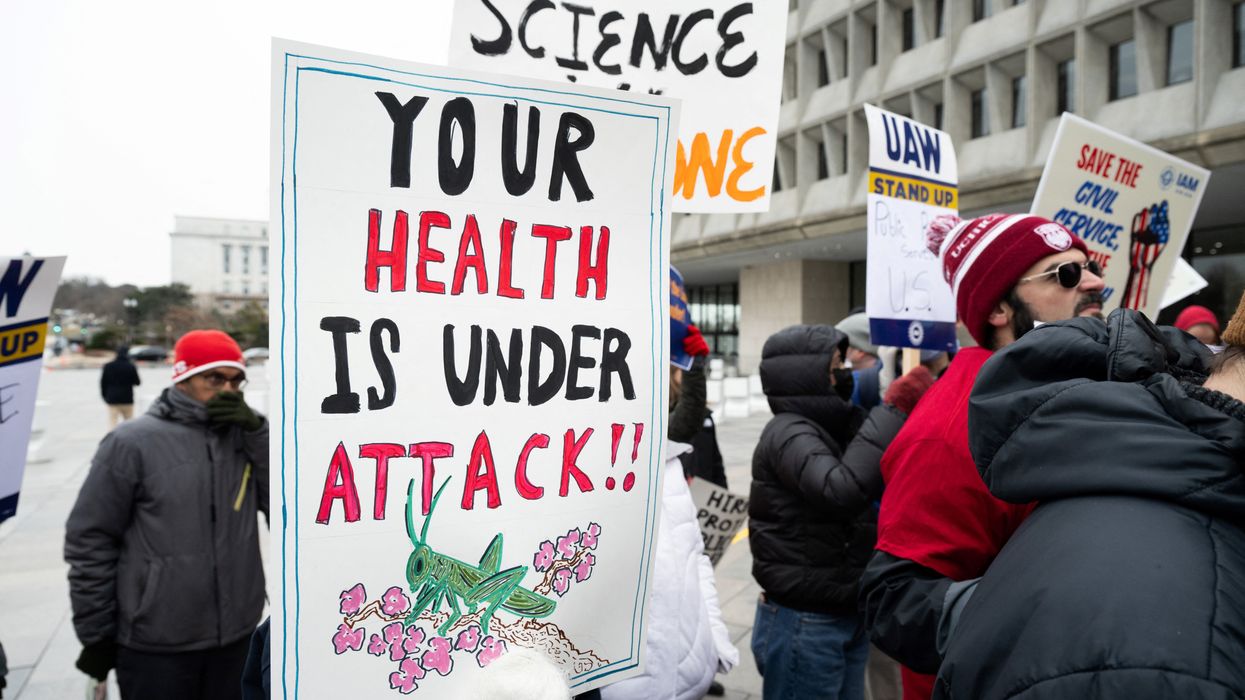Trump’s Attack on Science Will Leave Us All Sicker
Budget cuts and layoffs at major U.S. public health agencies threaten our health and well-being and will hobble scientific progress and innovation.
The Trump administration’s evisceration of the federal agencies that protect our health and environment is a full-throttled attack on science that will set our nation back for years, if not decades to come.
The illegal firings of thousands of employees across Health and Human Services’ (HHS) 13 divisions, the freezing of government contracts, attacks on universities, and cuts to billions in research dollars will have profound effects on our health and well-being, economic competitiveness, and standing as a world leader in science.
And the wrecking ball has just begun swinging. HHS is slated to shed 20,000 employees, or one-quarter of its dedicated workforce, and see its budget cut by 26%.
At its worst, the dismantling of federal agencies like the CDC, the NIH, and the Food and Drug Administration is cruelly calculated to hurt those most vulnerable in our society—the poor, the disabled, and the elderly.
A disdain for independent science and expertise is seemingly a root cause of the actions. As Sudip Parikh, chief executive officer of the American Association for the Advancement of Science and executive publisher, Science journals said at this year’s annual meeting in Boston, “Science and engineering and medicine are searches for truth, facts, and objectivity. We live in a time when that seems under threat, and we need to be able to say that.”
To his point, a May 23 Executive Order puts science under the control of politicians by giving presidential appointees broad latitude to police scientific research and conduct and punish alleged violations of its Orwellian “Gold Standard Science.”
Robert F. Kennedy Jr., the secretary of HHS, has already acted on the EO by firing the entire advisery committee that helps guide vaccine policy for the Centers for Disease Control and Prevention (CDC). Seventeen highly qualified, evidence-based physicians and researchers, many with decades of expertise, are to be replaced with individuals aligned with Kennedy’s anti-vaccination ideology.
The president’s appointment of Kennedy, a lawyer with no scientific training, to lead the HHS is itself an attack on expertise and truth. In four short months, Kennedy has made ill-informed decisions from announcing a change in Covid-19 vaccine policy without notifying the CDC, to offering a Florida sanctuary for Canadian ostriches exposed to bird flu, to ending the development of a vaccine for the H5N1 virus, even as researchers demonstrate its ability to rapidly spread through airborne transmission.
Science is clearly taking a backseat to grandstanding, and the consequences could be deadly.
At its best, the demolition of our public health and research institutions shows an indifference to the pain and suffering that may fall on Americans when the agencies that keep our food safe, water clean, and protect us from deadly diseases are kneecapped. At its worst, the dismantling of federal agencies like the CDC, the NIH, and the Food and Drug Administration is cruelly calculated to hurt those most vulnerable in our society—the poor, the disabled, and the elderly.
Americans are already sicker and die younger in comparison with other wealthy nations, according to a 2024 report by the Commonwealth Fund. Life expectancy is 4.1 years shorter in the U.S. compared with our peer nations, and maternal mortality, for instance, is more than three times higher than in Europe. The Trump administration’s attacks on science and medicine will only worsen these gaps.
Lawsuits challenging the legality of the administration’s executive orders are moving through the court system, but we do not yet know how all of this will play out.
Already the damages are taking a toll, with NIH being especially hard hit. With an annual budget of $47 billion, the NIH is the world’s largest public funder of biomedical research and development. It’s no coincidence that the world’s leading medical labs are located in the U.S., or that our research benefits people across the globe.
The Trump administration plans to cut NIH’s budget by $18 billion, or about 40%, and to consolidate its 27 institutes and centers into just eight. At least 2,100 NIH research grants have been terminated thus far, totaling $9.5 billion.
With at least 1,200 staff laid off all at once, and thousands more voluntarily resigning, the loss of institutional knowledge and medical expertise is staggering. The full extent of the brain drain is unknown because NIH Director Jayanta Bhattacharya has yet to report the total number of staff losses.
One of NIH’s critical roles is to fund the basic science research that underpins development of drugs and therapeutics, long before the private sector takes an interest. Companies take that basic science and further develop and commercialize vaccines, drugs, and therapies that save lives. Funding for the grants that the NIH provides these labs, universities, and institutions has largely been frozen for the past month, as part of the administration’s war on universities, even though a federal judge ordered a release of the money. Billions of biomedical research dollars allocated to Harvard, Cornell, Northwestern, Brown, Columbia, and Princeton are being withheld.
The agency has reportedly stopped vetting future studies on cancer, Alzheimer’s, heart disease, and other illnesses and slashed the programs for cancer and Alzheimer’s research.
The Trump administration also cut the overhead rate that NIH pays to research universities to keep the lights on, computers running, and lab equipment maintained from between 40% and 70% to 15%. Such deep cuts will lead to even more layoffs, and research could grind to a halt.
While a U.S. District Court ruled the change was “arbitrary and capricious,” it’s unclear whether the Trump administration will reverse the policy.
Halting research will have profound impacts on the American health system and on our health.
It will disrupt local economies and hurt our overall competitiveness. Every dollar that NIH spends on research generates more than two dollars in economic activity, not to mention the patents and biomedical startups that ensue.
Some U.S. universities are reducing or halting their PhD admissions as a consequence. Doctoral students—our scientific future—are watching their dreams die.
“Many are right now questioning the viability of being a scientist in the U.S. going forward,” Carole Labonne, developmental and stem cell biologist at Northwestern University, said in a PBS interview. We could see a brain drain in the U.S., as young scientists choose a different career path or choose another country in which to build their career.
And NIH is but one federal agency that the Trump administration is taking a chain saw to. Cuts at the Food and Drug Administration could have immediate impacts on our food safety, at a time when food contamination outbreaks are on the rise. Staff with technical expertise in nutrition, infant formula, and food safety response have been cut.
Similarly, at the CDC, staff cuts and contract freezes are coming at a time when the nation is experiencing an H5N1 outbreak in poultry and dairy cattle that may well lead to another pandemic, an unprecedented spread of measles in 33 states, and a tuberculosis outbreak in Kansas. The CDC plays a vital role, working with states and communities to understand where disease is, how to prevent it, and how to react. Simply put, we are losing people on the front lines of keeping people healthy.



